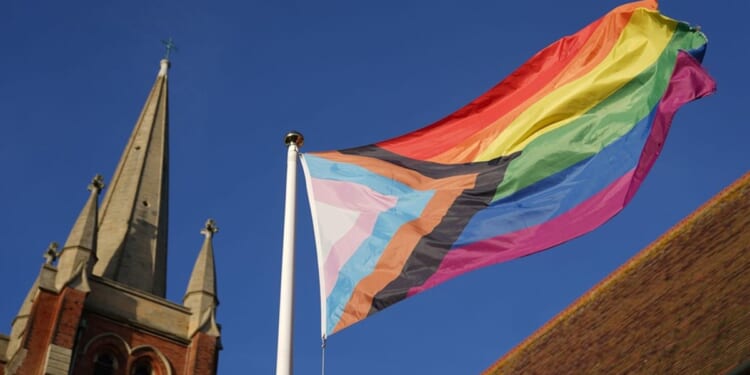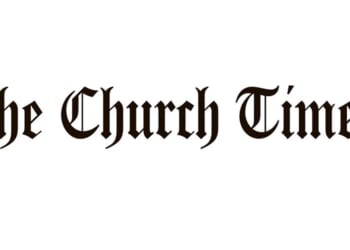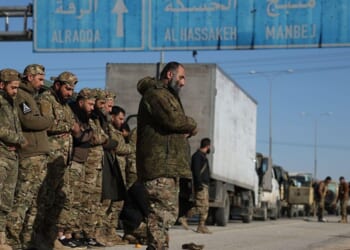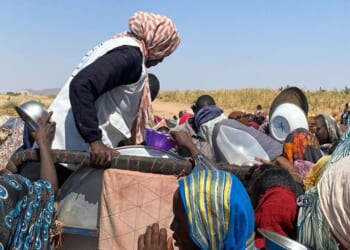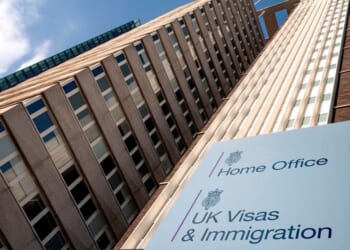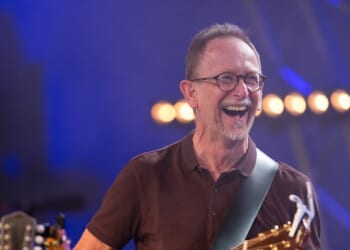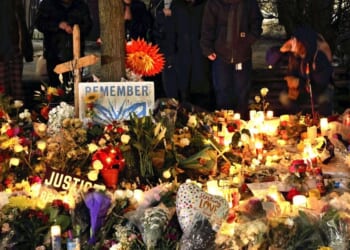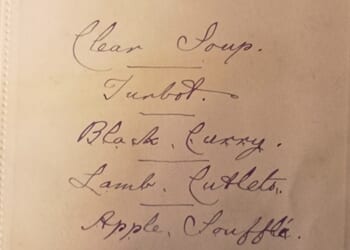THE crumbs of Living in Love and Faith (LLF) are meagre. Institutionally speaking, the Church of England is almost as unwelcoming to those LGBT+ people who wish to celebrate their lifelong commitment before God as it was before LLF began. Whatever happened to “radical new Christian inclusion”?
For me, it is deeply disillusioning. Once more, my work as a priest has been undermined by the actions of the House of Bishops, my calling questioned, and our classic Anglican welcome to all compromised. The Bishops for ever tell us to hope, to keep faith — and always disappoint, often diminishing my sense of vocation into a job. Their decisions last week will have the effect of doing this for many, condemning the Church to a morale-sapping war of attrition.
But, however passive-aggressively hostile the Church of England remains for same-sex couples, things at the local level are often different. At Holy Trinity and St Mary’s, Guildford, I have used the Prayers of Love and Faith (PLF) in two stand-alone services since they were permitted, and would welcome further enquiries. They have been simple occasions of quiet joy. The pastoral task laid upon me by my ordination vows and the mission of God in this community is more important than allowing an illegitimate request from the House of Bishops to get in the way.
Illegitimate? Absolutely. Throughout the LLF process in the General Synod, I asked the House of Bishops repeatedly what prevented my using the PLF resources in stand-alone services. The response was always the same request: Please don’t.
Now, with the news that the bishops want clergy not to use PLF resources in stand-alone services until the General Synod has achieved a two-thirds majority in favour (News, 17 October), is this anything more than a reasonable request? I say that it is. I say that it is an illegitimate piece of overreach by our bishops which clergy are at liberty to ignore.
AT MY licensing, I made a solemn affirmation of canonical obedience to my Bishop (I don’t swear oaths, on conscience grounds). In granting me his licence, my Bishop gave me the liberty to exercise my ministry within the bounds of the doctrine and canons of the Church of England.
It is a quid pro quo: clergy minister within those boundaries, our bishops give us freedom to minister according to our consciences to the fullest extent of those boundaries. (I note in passing the widespread disobedience to the canons by Evangelicals and Catholics which is never challenged. Liturgical illegality is endemic among Charismatic Evangelicals; bishops wave monstrances at Benediction without a second thought.)
When the House of Bishops published and commended the PLF resources, they declared that there was nothing in them contrary to the doctrine of the Church of England. They permitted them to be used in existing authorised services, but not in stand-alone services. This was a liturgical innovation for our Church: worship resources that can be used only in certain services, and not in others. Ironically, such a change may itself require a two-thirds majority in the General Synod!
When I have offered stand-alone PLF services in the past two years, after a unanimous PCC decision, I have done this because the canons of the Church of England permit it. Canon B5 (On the discretion of ministers in conduct of public worship) is quite explicit: “The minister having the cure of souls may on occasions for which no provision is made . . . use forms of service considered suitable by [the minister] for those occasions and may permit another minister to use the said form of service.” They must be “reverent or seemly” and shall “be neither contrary to, nor indicative of any departure from, the doctrine of the Church of England in any essential matter”.
In short, I am using the discretion given to me at my licensing to exercise pastoral ministry within canonical boundaries. I understand that the legal and theological advice that the House has recently received says nothing that would contradict this view.
I would go further. Something that the Bishops have accepted throughout LLF, despite the objections of conservatives, is that there is legitimate disagreement about what is an “essential” matter of doctrine. With such latitude, faced with a simple request not to use the resources in stand-alone services, I believe that I am free to say, with politeness and respect, “You ask of me something you are not at liberty to ask.” Less politely put, “Wind your necks in.”
Some clergy will be worried about being disobedient to their bishops, but I hope that this makes it clear that this is a matter of canonical freedom that already exists for clergy, and that it would be an illegitimate use of episcopal power, if not a matter of discipline, for a bishop to threaten those who do with any repercussions. It is time to challenge the Bishops here, especially as they have so clearly buckled to the threats and deep pockets of the Alliance.
BUT perhaps the Bishops are not saying quite what we think. I think that it is possible to interpret the Bishops’ decision on stand-alone services as simply saying that it would require a two-thirds majority in the Synod in order for them to become an authorised liturgy, and not that clergy should desist from exercising their existing discretion in the canons to conduct stand-alone services. I shall be continuing to offer such services, and would welcome the opportunity to challenge the legal basis of any attempt to prevent me.
When the gospel was preached in synagogues by the early followers of the Way, it often faced opposition. The response of the disciples was to turn to the Gentiles. Faced with the inability of the institutional Church — led by its bishops — to allow the good news of God’s love to be available to all who love well and with holiness, perhaps it falls, despite the inevitable postcode lottery, to the parochial clergy of the Church of England to do what the Bishops are clearly unable to do.
The Revd Simon Butler is Rector of Holy Trinity and St Mary’s, Guildford. He is a former member of the General Synod and the Archbishops’ Council.
This is an edited version of an article that was first published on the website of Inclusive Evangelicals. inclusiveevangelicals.com

